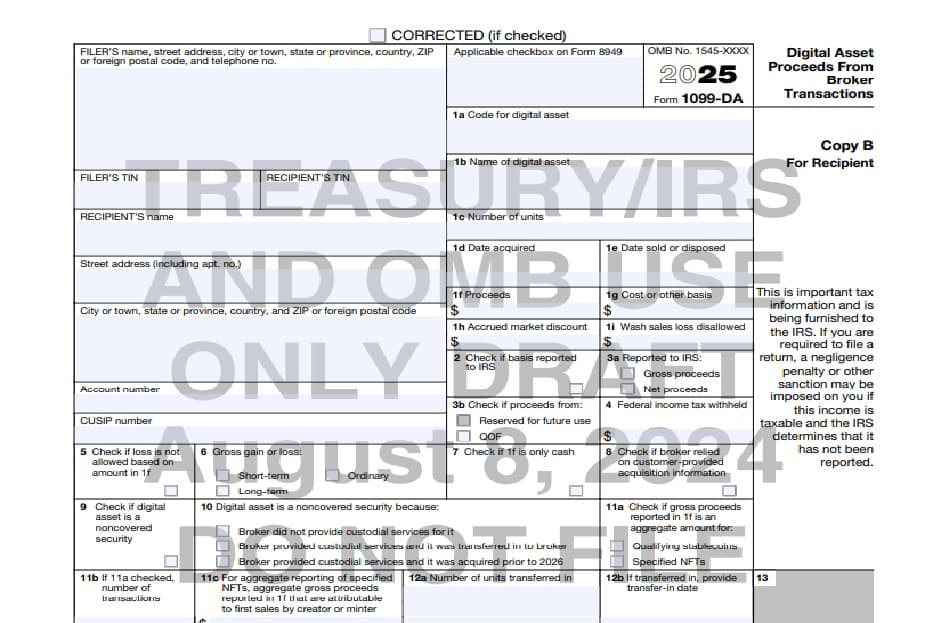IRS letter 2645C explained: A quick guide for taxpayers
IRS Letter 2645C, sometimes called an interim letter, is the Internal Revenue Service’s way of notifying you that they’ve received some type of information or documentation from you but haven’t taken action on it yet. However, the letter does not specify what documents were obtained.
The 2645c letter irs sends simply states that the tax-related items you submitted will be reviewed within 45 to 60 days. It acts as a placeholder, informing you that the IRS has received your information but has not yet processed or taken action on it.
These letters are sent out by the IRS 2645c letter system automatically when documents are received. The IRS sends over 700,000 of these letters annually! They are form letters intended to keep taxpayers, like you, informed about the status of your account.
What does the 2645c letter from IRS say?
When you receive letter 2645c from irs, here are key things it will likely contain:
- Date the letter originated: This helps identify what you may have recently sent to the IRS.
- Types of documents received: The letter will list common items like correspondence, payments, responses, and requests. However, it won’t specify which one they received from you.
- Next steps: The IRS Letter 2645C will instruct you that no response is required and that you’ll be contacted within 45-60 days.
- No indication of issues: The letter does not imply anything is wrong with your account. It is merely acknowledgement of receipt.

Reasons you may have gotten IRS letter 2645c
There are several reasons you may have been sent the 2645c letter from irs:
- Your employer or representative submitted expected documents on your behalf, such as wage records.
- You had previous tax issues that have since resolved. However, the letter was already processed.
- Routine processing delays at the IRS. The letter acts as a placeholder.
- Your case is closed but the letter was automatically generated anyway.
The main takeaway is that IRS Letter 2645C is procedural. It doesn’t indicate problems or that you must take action. It’s simply informational.
What should I do once I get the IRS 2645c letter?
When the IRS 2645c letter arrives, here are some tips on handling it properly:
- If you expected the letter, continue with any planned payments or actions on your end.
- Hold onto and file the letter 2645c from irs with the rest of your tax documents.
- If it was unexpected, review your account history or ask the IRS for clarity.
- Do not panic or assume you’re in trouble. The letter does not imply this.
- Wait the 45-60 days for the IRS to contact you if needed per the letter’s instructions.
- Watch for any other letters from the IRS subsequently.
Receiving IRS letter 2645c may feel stressful initially, but it is fairly commonplace and innocuous. As long as you remain organized and responsive, it should not raise alarm.
Why does the IRS use letter 2645c?
With over 160 million tax returns filed annually, the IRS depends heavily on letters to handle this massive volume efficiently. Specifically, Letter 2645C accomplishes a few objectives:
- Confirms your information was received instead of getting sent twice.
- Provides next steps, like allowing 45-60 days for pending review.
- Creates a paper trail and timeline for reference.
- Displays pending actions on your account in their systems.
So while IRS Letter 2645C adds steps for the IRS, it ultimately benefits taxpayers by opening clear communication channels.
Key facts about the 2645c letter IRS sends
Here are some additional quick facts about IRS Letter 2645C:
- It is not an audit letter and does not signify increased scrutiny.
- Different IRS letter codes indicate specific meanings. For example, CP2501 conveys issues exist.
- Various IRS departments may use Letter 2645C. It is very broad.
- Physical copies are always sent via US mail to your last address on file.
- Return addresses vary based on which IRS campus printed the letter.
While getting an IRS notice is anxiety-inducing, Letter 2645C is relatively harmless. Stay on course and address any further IRS communications appropriately.
Need help with the 2645c letter from IRS?
Attempting to comprehend IRS letters on your own can be challenging. If you need help managing letter 2645c from irs or other notices, consider enlisting a tax expert. A Certified Public Accountant (CPA) specializes in IRS guidelines and processes.
Here’s how partnering with a CPA can benefit you:
- Expertise handling IRS-specific issues and tax resolutions.
- Ability to directly communicate with the Internal Revenue Service on your behalf.
- Extensive knowledge to maximize deductions and credits.
- Guidance responding properly to IRS letter 2645c from IRS and other notices.
Having a CPA in your corner provides assurance that your taxes and the irs 2645c letter situation will be handled accurately. Search for a qualified CPA to help demystify communications from the IRS.
The takeaway on IRS letter 2645c
While receiving letter 2645c from irs initially sparks anxiety, it is merely a procedural notice. To recap:
- It acknowledges receipt of your info but the IRS has not reviewed or processed it yet.
- You do not need to respond immediately after getting the IRS 2645c letter.
- Keep it for your records and wait for further outreach per the letter’s timeline.
- It does not indicate you have tax problems or an audit.
Stay organized, communicate with the IRS when needed, and consider enlisting a CPA. With the proper perspective, the 2645c letter irs sent does not have to be frightening. It can be dealt with smoothly by understanding its purpose.







